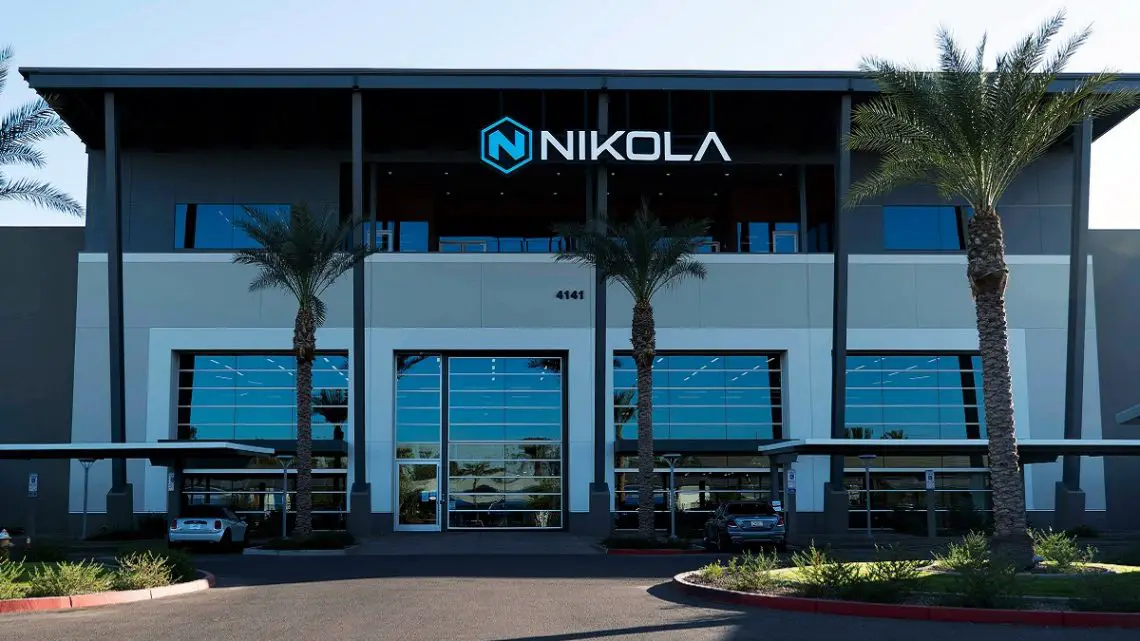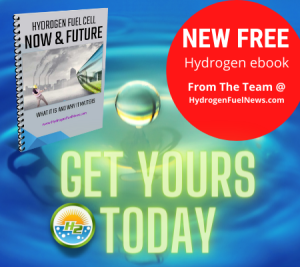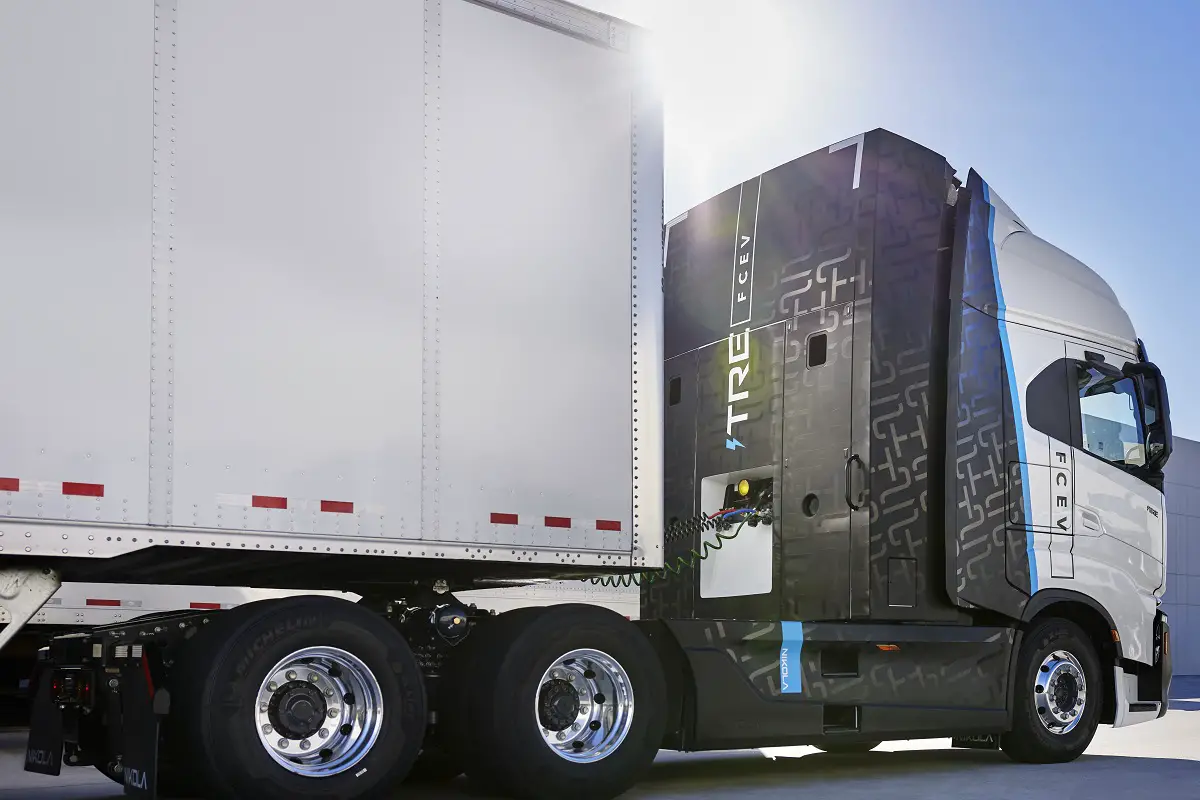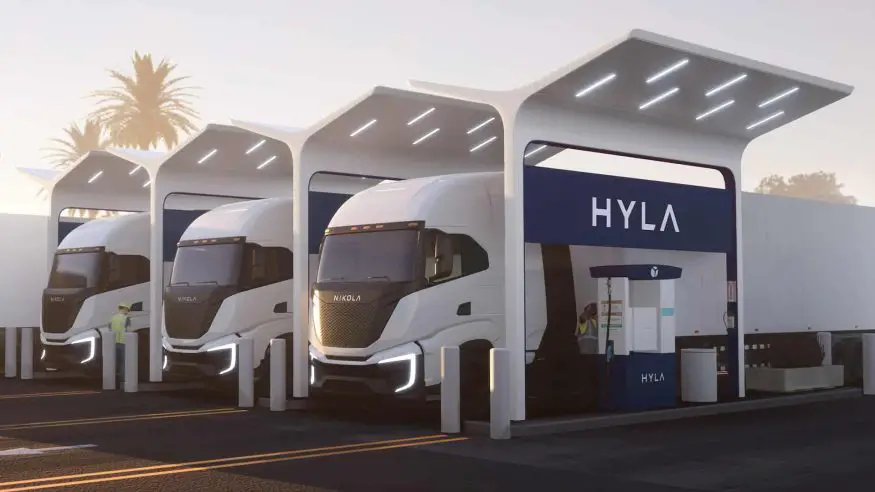
Nikola announces new hydrogen fuel and infrastructure brand HYLA
February 3, 2023The company has unveiled the new global brand for H2 energy and infrastructure.
Nikola Corporation, a leading zero-emission energy supply, infrastructure and transportation solutions company, has unveiled its newest global brand, HYLA, to take in its energy products for the production, distribution and dispensing of hydrogen fuel for fueling its zero-emission trucks.
The company announced the HYLA brand at its US headquarters in Phoenix, Arizona.
Nikola held a special event at its headquarters where it announced the hydrogen fuel energy brand. In attendance were over 300 fleet, supplier, government, energy and media representatives. The event placed the spotlight on Nikola’s truck and energy business progress.

“Nikola is the only company that is successfully integrating a revolutionary new product, the hydrogen fuel cell truck, and the full hydrogen energy infrastructure supply chain under one roof,” said Michael Lohscheller, CEO and President of Nikola. “The unveiling of our Nikola Tre fuel cell truck and flexible mobile fueling trailer demonstrates a real and sustainable competitive advantage for our customers and are significant proof points that we are accomplishing what we set out to achieve.”
The HYLA brand is specific to Nikola’s hydrogen fuel energy business for supporting its H2 vehicles.
“Hydrogen energy is the catalyst for the HYLA brand and serves as a forward-looking solution for our customers to help them achieve their sustainability goals and dramatically reduce the overall carbon emissions in the transportation sector,” said Nikola Energy President Carey Mendes.
The new Nikola Tre fuel cell electric vehicle (FCEV) has a considerable range as high as 500 miles. Moreover, the truck is also expected to have one of the largest ranges of all zero-carbon emission Class 8 tractor. The truck is appropriate for a spectrum of applications including drayage and intermodal, metro-regional truckload, and less than truckload, in addition to cases of specialized hauling use.

Nikola is developing hydrogen fuel access of up to 300 metric tons per day (TPD) under the HYLA brand. The H2 supply is predicted to have the support of Nikola partner project development, such as those from Plug Power, AZ Production Hub, City of Buckeye, IN Wabash Valley Resources, Terre Haute, Alberta TC Energy, Crosssfield, PA KeyState, and Clinton County.



 HFN News is your leading source for fresh hydrogen and renewable energy updates. Amid the fast-paced growth of hydrogen companies, we provide top-notch news and insights about this exciting sector. Our coverage spans from hydrogen cars to global sustainable initiatives, and we highlight the latest in green jobs and developing hydrogen hubs. We invite you to share your local hydrogen news and explore today’s renewable energy job listings on our site. Thanks for choosing HFN News as your trusted guide to the hydrogen and renewable energy world!
HFN News is your leading source for fresh hydrogen and renewable energy updates. Amid the fast-paced growth of hydrogen companies, we provide top-notch news and insights about this exciting sector. Our coverage spans from hydrogen cars to global sustainable initiatives, and we highlight the latest in green jobs and developing hydrogen hubs. We invite you to share your local hydrogen news and explore today’s renewable energy job listings on our site. Thanks for choosing HFN News as your trusted guide to the hydrogen and renewable energy world!
Great news for the truck industry, no doubt Nikola has copied the Tesla approach that installed its own high speed charging points to get their sales moving. Why buy a hydrogen powered truck if there are no filling stations?
Would really like you to add Florida to your list.
Also personal pickups and cars.
Agreed. If this takes off we may actually see realistic fleet vehicles for all sorts of industries that would love to go zero emissions however can’t afford the charging times for bevs over the fcev just needing a standard fill up time. The only real competition will be the hydrogen ice engine that Cummins diesel has which still needs to be fielded in real world larger scale applications.
Interested in steam power (old engine converted to run on steam ) read about a citron car( petrol)conversion to run on steam.
I wonder if some of this development came as a result of their recently-announced partnership with Plug Power ?
Such a great time to be alive. I wonder if I should convert my hybrid car engine to burn hydrogen or pitch the engine completely and install a fuel cell to power the electric motor. Smart people probably convert the gasoline engine to hydrogen. Spose Biden will pay for it?
Hi my name is Tlou William Manamela from South Africa I’m interested to know more about hydrogen again I need help to introduce it at home to help my country.
Please inform the state of avance of the electric truck project.
Will this work on cars coveted to lpg gas
This is one great step in the right direction. To make room for the hydrogen tank they use a European style cab over truck, which may even have a sleeper cab in the future. Next step could be to install wind turbinens and solar to produce hydrogen on site at filling stations all over the world. No pipe lines nor transportation. This would bring the cost down.